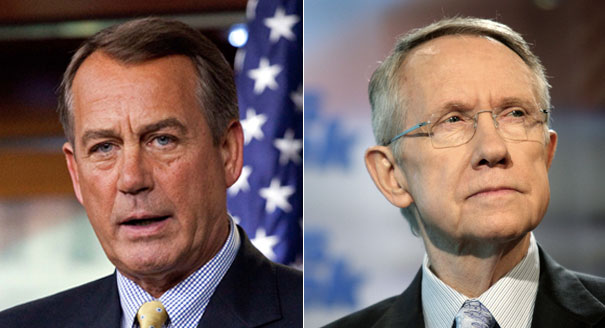By: Max Wallace

At the time of this writing, the government has been shutdown for 9 days. 9 days without government, but for most of us life is proceeding relatively normally. True, if you’re a federal employee, a young couple who’s had their wedding plans derailed, or one of the 2,000 workers currently stranded in the Grand Canyon, life probably feels anything but normal, but most U.S. citizens are successfully weathering the shutdown. This is largely because the shutdown has yet to have a major impact on the economy. While the major stock indexes have dropped since the shutdown was initiated, the markets are still exceeding expectations. Investors seem to have come to the realization, much like the rest of the country, that Congress suffers from a chronic inability to get anything. The shutdown isn’t really indicative of any true threat to government sustainability. Instead, it’s just the usual bickering that will probably resolve itself in due course. That’s not to say that the shutdown couldn’t eventually have a major negative effect on the economy. Anytime 800,000 people suddenly aren’t getting paid, the economy is going to feel a shock. Combine that with the multitude of private businesses that rely upon federal contracts and the economic impact of a month long government shutdown has been estimated at $55 billion (a total which equals the economic damage caused by Hurricanes Sandy and Katrina), there is a compelling case for getting the government back on track as soon as possible.
However, an even graver threat to the nation’s economy looms on the horizon in Washington. The Treasury Department estimates that the government will reach the debt ceiling on October 17, and unless Congress takes action, the repercussions could be dire. Failing to raise the debt ceiling would be exponentially more devastating than the government shutdown, as the Treasury would be forced to prioritize U.S. debt. Foreign debt would probably be granted the highest priority, at the expense of other federal obligations such as Social Security or Medicare. Eventually, the government will default on its debts, though this may not occur for several weeks after the ceiling is reached. The most devastating impact would likely be a massive decrease in the credit of the United States government. If an individual has a bad credit score, they can’t get a loan to pay for that new car they want; if a government has a bad credit score they can’t get a loan to pay for the military. This would decrease public and private spending not just in the United States, but in all of the countries with which we trade (all of them). So if Congress doesn’t raise the debt ceiling, their biggest concern won’t be workers stranded in national parks or a bridezilla who had her perfect day ruined, it’ll be the global recession they just started. This default on debt is the same crisis that Greece and several other European nations faced after pursuing all possible avenues to avoid such a collapse, if the U.S. defaults, it will be a completely self-inflicted disaster.
The mere threat of a default on U.S. debt has caused the interest rate on short term treasury bills to triple. Even if Congress raises the debt ceiling, as it has successfully done in the past, refusing to do so until the last minute still threatens to destabilize the economy. Even more frightening, a new report by Moody’s argues that even if the debt ceiling isn’t raised, the U.S. credit rating may not see an immediate downgrade. This will likely embolden Congress to extend their negotiations beyond the deadline, which would do nothing but harm the economy. Grandstanding and bargaining are to be expected, this is politics after all, but the once certain assumption that politicians will set aside their differences in order to ensure the continued health and function of the American government has been cast into doubt. Politicians on both sides of the aisle must realize that a failure to take action and raise the debt ceiling will have serious consequences. The full faith and credit of the United States government is much too serious of a thing to be used as a bargaining chip in a partisan battle. For the good of the country, some people in Washington are going to have to sacrifice some of their lofty principles and strike a deal, because if October 17 rolls around and the government is still gridlocked, everyone loses.


